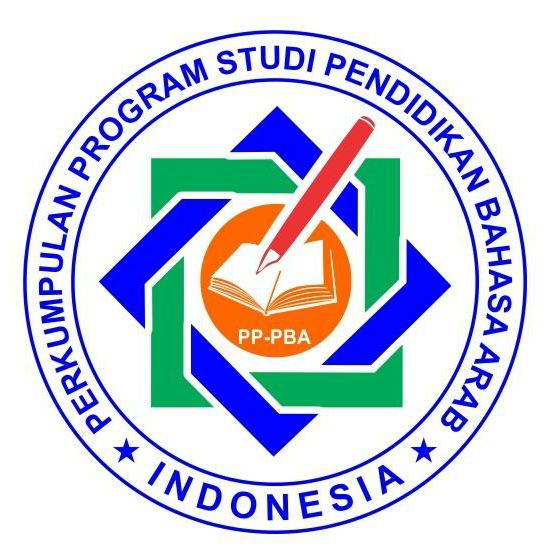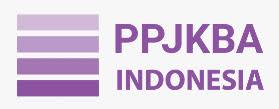Deep Learning Approach for Arabic Vocabulary Mastery in the Digital Era
DOI:
https://doi.org/10.37680/aphorisme.v6i1.7183Keywords:
Arabic Language, Deep Learning, Integrative Literature Review, Mufradāt, TechnologyAbstract
This research examines applying a deep learning approach in teaching Arabic vocabulary (mufradāt) by integrating three main pillars: mindful learning, meaningful learning, and joyful learning. The research explores how these principles can enhance Arabic vocabulary mastery through innovative technology-based strategies. Using the Integrative Literature Review (ILR) method, this study synthesizes relevant literature from indexed journals, academic books, and research reports published between 2020 and 2025. Data was collected from trusted academic databases such as Google Scholar, Crossref, and Scopus. After a rigorous selection process, 12 high-quality literature sources were analyzed to identify key themes, methodologies, and findings. The analysis process involved identifying the theoretical foundation, objectives, methodology, findings, and relevance of deep learning-based mufradāt instruction studies. Key findings from various sources were synthesized to formulate a conceptual instructional model that integrates deep learning principles to enhance the effectiveness of Arabic vocabulary learning. The results show that the deep learning approach improves Arabic vocabulary mastery by encouraging student engagement, contextual understanding, and emotional motivation. Mindful learning enhances focus and retention through reflective practices and multimedia tools. Meaningful learning strengthens long-term memory by connecting new vocabulary with prior knowledge and real-life contexts. Joyful learning increases motivation through gamification, interactive media (such as Duolingo, Kahoot!, and Educandy), and collaborative activities. However, limited technological infrastructure in remote areas can hinder implementation. In conclusion, the deep learning approach supported by mindful, meaningful, and joyful learning strategies offers a transformative framework for teaching Arabic vocabulary. Educators can create engaging, effective, and sustainable learning environments by leveraging technology and student-centered pedagogy.
References
Adnyana, I. K. S. (2024). Implementasi Pendekatan Deep Learning dalam Pembelajaran Bahasa Indonesia. Jurnal Retorika, 5(1), 1–14.
Ajeng, Z., Rosita, R., Yuli, I., Dewi, M., & Hardiansyah, F. (2025). Implementasi Teknik Mindfulness Terhadap Motivasi Belajar Siswa Kelas Vi Sdn Paberasan I Sumenep. JAl-Muaddib: Jurnal Kajian Ilmu Pendidikan, 07(01), 206–214.
Al-Fauzan, A. R. I. (2015). Iḍā‘āt li Mu`allimī al-Lughah al-`Arabiyyah lighairi an-Nāṭiqīn bihā (2nd ed.) [Guidelines for Teachers of Arabic as a Foreign Language].
Al Farisi, M. Z., Maulani, H., Hardoyo, A. B., Khalid, S. M., & Saleh, N. (2024). Investigating Arabic language teaching materials based on Indonesian folklore: an ethnographic study on the folktale of “Bandung.” Asian Education and Development Studies, 13(2), 134–149. https://doi.org/10.1108/AEDS-07-2023-0082
Alafnan, M. A. (2025). Artificial Intelligence and Language : Bridging Arabic and English with Technology. Journal of Ecohumanism, 6798, 240–256.
Alahmadi, A., & Foltz, A. (2020). Effects of Language Skills and Strategy Use on Vocabulary Learning Through Lexical Translation and Inferencing. Journal of Psycholinguistic Research, 49(6), 975–991. https://doi.org/10.1007/s10936-020-09720-9
Albantani, A. M., Arifin, F., & Umbar, K. (2023). Analisis Konten Budaya pada Buku Ajar BIPA “ Ramah Berbahasa Jilid 1 ” untuk Penutur Bahasa Arab Arabi : Journal of Arabic Studies. 8(1), 67–79.
Almelhes, S. A. (2024). Gamification for teaching the Arabic language to non-native speakers: a systematic literature review. Frontiers in Education, 9(March), 1–11. https://doi.org/10.3389/feduc.2024.1371955
Anhar, A., Nurhuda, A., Lathif, N. M., & Mahbubi, M. (2025). Diskursus Deep Learning Curriculum dan Pengembangan Isunya di Masa Depan melalui Tinjauan Analisis Bibliometrik. Alwashliyah JPSH, 3, 1–17.
Ashari, M. K., Rohmah, A. N., Yudi, U., Learning, J., Interaktif, K., & Aplikasi, B. (2023). Joyful Learning With App-Based Interactive Quizzes in Senior High Schools In The Digital Era. Jurnal CENDEKIA : Media Komunikasi Penelitian Dan Pengembangan Pendidikan Islam Volume, 15(02), 210–228.
Bahy, M. B. A., Yusuf, K., & Rif’at, A. D. (2022). Exploring Public Health Arabic Vocabulary For Arabic Teaching Materials. An Nabighoh, 24(1), 33. https://doi.org/10.32332/an-nabighoh.v24i1.4574
Chamidah, D., Fauzan, A., & Bakheet, B. M. (2023). I’dâd Wasîlah Ta’lîm al-Mufradât ‘alâ Asâs Android bi Istikhdâm Mauqi’ Kodular. International Journal of Arabic Language Teaching, 5(02), 274. https://doi.org/10.32332/ijalt.v5i02.6664
Erwina Rachmi Puspapertiwi, R. S. N. (2024). Apa Itu Deep Learning yang Disebut Gantikan Kurikulum Merdeka Belajar? Kompas. https://www.kompas.com/tren/read/2024/11/11/063000165/apa-itu-deep-learning-yang-disebut-gantikan-kurikulum-merdeka-belajar-?page=all
Eslit, E. R. (2023). Elevating Language Acquisition through Deep Learning and Meaningful Pedagogy in an AI-Evolving Educational Landscape. Preprints.Org. https://doi.org/10.20944/preprints202309.0658.v1
Feriyanto, F., & Anjariyah, D. (2024). Deep Learning Approach Through Meaningful , Mindful , and Joyful Learning : A Library Research. Electronic Journal of Education, Social Economics and Technology, 5(2), 208–212.
Fitria, A., & Roziqi, M. A. (2022). Educandy Platform in Improving the Understanding of Arabic Vocabulary for High School Students During the Pandemic. Alsinatuna, 7(2), 143–157. https://doi.org/10.28918/alsinatuna.v7i2.4865
Gharawi, M. A., & Bidin, A. (2016). Computer Assisted Language Learning for Learning Arabic as a Second Language in Malaysia: Teacher Perceptions. International Journal of Information and Education Technology, 6(8), 633–637. https://doi.org/10.7763/ijiet.2016.v6.764
Ghebrechristos, H., & Alaghband, G. (2020). Deep curriculum learning optimization. SN Computer Science, 2–14. https://doi.org/10.1007/s42979-020-00251-7
Gufron, I. A., & Rofi, S. A. (2024). Kajian Aksiologi Pemebelajaran Berbasis Deep Learning Pada Pendidikan Dasar. Pendas : Jurnal Ilmiah Pendidikan Dasar, 9(4), 524–530. https://doi.org/10.1134/s0514749219040037
Hamida, N. A., Sein, L. H., & Ma’rifatunnisa’, W. (2022). Implementasi Teori Meaningfull Learning David Ausubel Dalam Pembelajaran Sejarah Kebudayaan Islam di MI Nursyamiyah Tuban. Al-Madrasah: Jurnal Pendidikan Madrasah Ibtidaiyah, 6(4), 1386. https://doi.org/10.35931/am.v6i4.1294
Hammad Al-Rashidi, A., & Aberash, A. (2024). Reflective thinking and self-evaluation in language learning: mirroring the impacts on Saudi Arabian EFL students’ growth mindfulness, resilience, and academic well-being. Asian-Pacific Journal of Second and Foreign Language Education, 9(1), 1–24. https://doi.org/10.1186/s40862-024-00265-1
Hijriyah, U., Edi, R. N., Erlina, Kesuma, G. C., & Khodr, T. S. I. (2024). Innovative Approaches To Arabic Vocabulary Learning for Islamic Senior High School Students With Lectora Inspire. Jurnal Pendidikan Islam, 10(2), 218–233. https://doi.org/10.15575/JPI.V10I2.28754
Ilhami, R., Wargadinata, W., Hasan, N., Ikhlas, M., & Najar, S. A. (2022). Quizizz As an Arabic Vocabulary Media Learning in Digitalization Era: Process, Weakness and Strengths. Al-Ta’rib : Jurnal Ilmiah Program Studi Pendidikan Bahasa Arab IAIN Palangka Raya. https://doi.org/10.23971/altarib.v10i1.3787
Kabat-Zinn, J. (2003). Mindfulness-based interventions in context: Past, present, and future. Clinical Psychology: Science and Practice, 10(2), 144–156. https://doi.org/10.1093/clipsy/bpg016
Kuru Gönen, S. İ. (2022). Mindfulness-based practices for EFL teachers: sample tasks and insights to cultivate mindfulness. Focus on ELT Journal, 4(3), 78–93. https://doi.org/10.14744/felt.2022.4.3.6
Latifatul Inayati, N., Kasanah, U. N., & Khotimah, K. (2021). Pendampingan Metode Musābaqah Biṭāqah Mukhtaliṭul Kalimah Dalam Pembelajaran Bahasa Arab Di Pondok Pesantren Darusy Syahadah Boyolali. Jurnal Pengabdian Masyarakat Nusantara (JPMN), 1(1), 18. https://doi.org/10.35870/jpmn.v1i1.263
M Mohideen, H. L. (2024). Exploring the Opportunities of Implementing Artificial Intelligence (AI) Technology for Teaching Arabic to Non-Native Speakers: A Theoretical Approach. Journal of Digital Learning and Distance Education, 2(9). https://www.rjupublisher.com/ojs/index.php/JDLDE
Mariana, A., & Hula, I. R. N. (2024). Application of Deep Learning in Foreign Language Learning for Boarding Students : Meaningful , Mindful , and Joyful Analysis. Proceedings of Law, Education, Adn Socio-Economic Studies, 1.
Mayer, R. E. (2002). Multimedia Learning. The Psychology Of Learning And Motivation, 41, 71–94. https://doi.org/10.1057/9780230800601_4
Muhaimin, A., & Thoms, G. (2025). The Role of Visual Media in the Mastery of Arabic Vocabulary ( Mufradat ) for Grade VII Students of Salafiyah Wustho Islamic Centre BIn Baz Togyakarta. International Journal of Post Axial: Futuristic Teaching and Learning, 3(2), 73–84.
Muharom Albantani, A., & Madkur, A. (2018). Think Globally, Act Locally: The Strategy of Incorporating Local Wisdom in Foreign Language Teaching in Indonesia. International Journal of Applied Linguistics and English Literature, 7(2), 1. https://doi.org/10.7575/aiac.ijalel.v.7n.2p.1
Mystakidis, S. (2021). Deep Meaningful Learning. Encyclopedia, 1(3), 988–997. https://doi.org/10.3390/encyclopedia1030075
Nisa, A. Z., Sopian, A., & Nurbayan, Y. (2024). The Effectiveness of Using the Aural-Oral Approach in Arabic Learning (Mufradāt). Tadris Al-’Arabiyyah: Jurnal Pendidikan Bahasa Arab Dan Kebahasaaraban, 3(1), 1–12. https://doi.org/10.15575/ta.v3i1.32039
Nurdiana, R., Kumalasari, D., Setiawan, C., & Daroini, S. (2023). Significance of Local Wisdom in Preparing Arabic Teaching Materials. Tadris Al-’Arabiyyah: Jurnal Pendidikan Bahasa Arab Dan Kebahasaaraban, 2(2), 156–167. https://doi.org/10.15575/ta.v2i2.26328
Okumuş Dağdeler, K. (2023). A systematic review of Mobile-Assisted Vocabulary Learning research. Smart Learning Environments, 10(1). https://doi.org/10.1186/s40561-023-00235-z
Purba, A. (2022). How First and Second Languages Influence Indonesian Students’ English as a Third Language: Transfer and Interference Analysis. Elsya : Journal of English Language Studies, 4(2), 147–156. https://doi.org/10.31849/elsya.v4i2.8704
Putri, R., Syahnam, S., Kurnia, H., Indah, M., & Fierna, M. (2022). Penerapan Deep Learning dalam Pendidikan di Indonesia. Prosiding Seminar Nasional Pendidikan Pancasila Dan Kewarganegaraan Universitas Pamulang, 2, 97–102.
Ritonga, M., Febriani, S. R., Kustati, M., Khaef, E., Ritonga, A. W., & Yasmar, R. (2022). Duolingo: An Arabic Speaking Skills’ Learning Platform for Andragogy Education. Education Research International, 1–9. https://doi.org/10.1155/2022/7090752
Rizqia, A. S., Sopian, A., Ridlo, A., & Abdulkhaleq, Al-Rawafi. (2024). Using Mimicry Memorization Method in Improving Student’s Learning Outcomes on the Lesson of Arabic Language. Arabi : Journal of Arabic Studies, 9(1), 80–90. https://journal.imla.or.id/index.php/arabi/article/view/742
Rojabi, A. R., Setiawan, S., Munir, A., Purwati, O., Safriyani, R., Hayuningtyas, N., Khodijah, S., & Amumpuni, R. S. (2022). Kahoot, is it fun or unfun? Gamifying vocabulary learning to boost exam scores, engagement, and motivation. Frontiers in Education, 7(September), 1–11. https://doi.org/10.3389/feduc.2022.939884
Sari, A. W., & Arta, D. J. (2025). Implementasi Deep Learning : Suatu Inovasi Pendidikan. Jurnal Wawasan Pengembangan Pendidikan, 13(01).
Siregar, S. D. P., Asep Sopian, & Nunung Nursyamsiyah. (2023). Pembelajaran Mufradat Bahasa Arab Melalui Media Anagram. Shaut Al Arabiyyah, 11(2), 503–511. https://doi.org/10.24252/saa.v11i2.32855
Solimando, C. (2022). E-Learning and Arabic in the Age of Covis-19: Rethinking the Learning of Vocabulary (pp. 166–180).
Suhartono, Hasibuan, Z. E., & Siregar, S. (2016). Keterampilan Penguasaan Nahwu Dan Sharaf Terhadap Kemampuan Memahai Kitab Tafsir Di Pondok Pesantren Mardhatillah Tapanuli Selatan. Ahsani Taqwim, 1(2), 1–23.
Suwandi, Putri, R., & Sulastri. (2024). Inovasi Pendidikan dengan Menggunakan Model Deep Learning di Indonesia. Jurnal Pendidikan Kewarganegaraan Dan Politik (JPKP), 2(2), 69–77.
Suwardi, S., Abdullah, M. F., & Achmad, S. (2023). The Effectiveness of Mufradat Cards in Arabic Learning Outcomes in Thematic Learning in Madrasah Ibtidaiyah. LISANIA: Journal of Arabic Education and Literature, 7(1), 14–30. https://doi.org/10.18326/lisania.v7i1.14-30
Tirkes, G., Ekin, C. C., Sengil, G., Bostan, A., & Karakaya, M. (2018). An Underfradueate Curriculum for Deep Learning. International Conference on Computer and Engineering. https://doi.org/10.1109/UBMK.2018.8566575
Torraco, R. J. (2005). Writing Integrative Literature Reviews: Guidelines and Examples. Human Resource Development Review, 4(3), 356–367. https://doi.org/10.1177/1534484305278283
Torraco, R. J. (2016). Writing Integrative Literature Reviews: Using the Past and Present to Explore the Future. Human Resource Development Review, 15(4), 404–428. https://doi.org/10.1177/1534484316671606
Ulagammal, S., & Ramesh, C. (2023). Expanding Access to Mindfulness Education in Adaptive Learning: Enhancing Student Well-Being and Academic Success. Thiagarajar College of Preceptors Edu Spectra, 5(S1), 81–84. https://doi.org/10.34293/eduspectra.v5is1-may23.014
Vallori, A. B. (2014). Meaningful Learning in Practice. Journal of Education and Human Development, 3(4), 199–209. https://doi.org/10.15640/jehd.v3n4a18
Wan Daud, W. A. A., Ghani, M. T. A., Rahman, A. A., Bin Mohamad Yusof, M. A., & Amiruddin, A. Z. (2021). ARabic-Kafa: Design and development of educational material for Arabic vocabulary with augmented reality technology. Journal of Language and Linguistic Studies, 17(4), 1760–1772. https://doi.org/10.52462/jlls.128
Wijaya, C., Murdiono, M., & Sarimov, R. (2023). Learning Memorize Arabic Vocabulary with Hangman Games. Arabi : Journal of Arabic Studies, 8(1), 11–21. https://doi.org/10.24865/ajas.v8i1.500
Downloads
Published
Issue
Section
License
Copyright (c) 2025 Salma Nur Istiqomah, Asep Sopian

This work is licensed under a Creative Commons Attribution-NonCommercial 4.0 International License.
Authors who publish with this journal agree to the following terms:
Authors retain copyright and grant the journal right of first publication with the work simultaneously licensed under a Creative Commons Attribution-NonCommercial 4.0 International License that allows others to share the work with an acknowledgement of the work's authorship and initial publication in this journal.
Authors are able to enter into separate, additional contractual arrangements for the non-exclusive distribution of the journal's published version of the work (e.g., post it to an institutional repository or publish it in a book), with an acknowledgement of its initial publication in this journal.
Authors are permitted and encouraged to post their work online (e.g., in institutional repositories or on their website) prior to and during the submission process, as it can lead to productive exchanges, as well as earlier and greater citation of published work.




.jpg)


